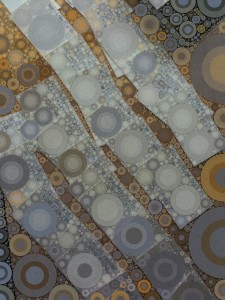 We’re currently covering characters in the Writing F&SF class, so I thought I’d pull out a little from my notes.
We’re currently covering characters in the Writing F&SF class, so I thought I’d pull out a little from my notes.
Some simplistic stories have characters that seem like placeholders, as though any individual could fit into that slot. Fairy tales, for instance, tend to have generic characters: the princess, the prince, the witch that have little dimensionality to them. One delightful strategy for working with them, in fact, is to pick a character and flesh them out to the point where they shape the story.
That is the most important thingL: characters must shape the story. They need to influence the action and make the narrative one that could only happen to them.
Let’s take a simple plot: a character must escape zombies. Our first character, a survivalist, keeps two shotguns in her apartment and is steel willed to the point where she is capable of cutting off a limb to avoid infection by zombie bite. The second is a meek-mannered scientist who faints at the sight of blood but is capable of building marvelous devices. The story and what happens in it is very different depending on which character gets put into the situation.
What happens in the story should be the result of what your character does, and her/his actions are dependent on both their personality and what they want. Vonnegut tells us every character in a story needs to have something they want, even if it’s just a glass of water. Because what they want dictates what they will do while their personality decides how they will go about doing it. You’ll also want to keep in mind that humans, like water, follow the path of least resistance. They will usually pick the easiest way before moving onto to something harder if it fails them.
Stuck and wondering what your character will do next? Think about what they want and how they might try to get it. (Then how you will thwart them, because the more you put that character through, the more your reader will come to know and identify with them.)
Look at your favorite characters and see how the writer communicates their nuances. Some of my favorites:
- Richard St. Vier in Ellen Kushner’s Swordspoint
- Isyllt Iskaldur in Amanda Downum’s The Drowning City
- Mapp and Lucia in E.F. Benson’s Mapp and Lucia series (and you can get all of the books in one delicious heap for $1.99 on the Kindle, which is a great deal)
- Phillip and Lymond in Dorothy Dunnett’s marvelous Lymond Chronicles
Who are your favorite characters and why?
Enjoy this writing advice and want more content like it? Check out the classes Cat gives via the Rambo Academy for Wayward Writers, which offers both on-demand and live online writing classes for fantasy and science fiction writers from Cat and other authors, including Ann Leckie, Seanan McGuire, Fran Wilde and other talents! All classes include three free slots.
Prefer to opt for weekly interaction, advice, opportunities to ask questions, and access to the Chez Rambo Discord community and critique group? Check out Cat’s Patreon. Or sample her writing here.









